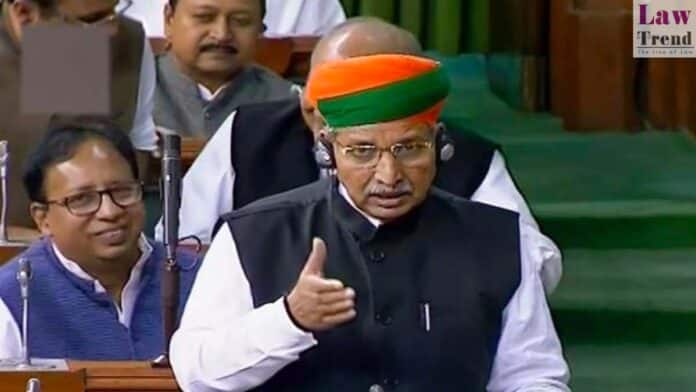Union Law Minister Arjun Ram Meghwal introduced significant constitutional amendment bills in the Lok Sabha on Tuesday aimed at synchronizing the election schedules for the Lok Sabha and state assemblies. The proposal led to a divided house with 269 MPs voting in favor and 198 against the motion.
The two bills in question, the Constitution (One Hundred and Twenty-Ninth Amendment) Bill, 2024, and the Union Territories Laws (Amendment) Bill, 2024, aim to facilitate simultaneous elections, a move that has sparked a fierce debate among the parliamentarians.
The introduction of the bills triggered immediate opposition from several parties, including the Congress, the Samajwadi Party (SP), and the Trinamool Congress (TMC). Congress MP Manish Tewari vociferously opposed the bills, arguing that they threaten the foundational principles enshrined in the Constitution. “The introduction and consideration of the one nation, one election bills are beyond the legislative competence of this House,” Tewari asserted, urging the government to withdraw the proposed legislation.
Echoing Tewari’s concerns, SP MP Dharmendra Yadav accused the ruling BJP of attempting to impose a “dictatorship” under the guise of electoral reform. “Just two days ago, efforts were celebrated to save the Constitution, and now, this bill threatens to end its very spirit,” Yadav stated, aligning his views with those of his party leader Akhilesh Yadav.
TMC MP Kalyan Banerjee also criticized the bills, suggesting they served individual interests rather than electoral reform. “This is not about reforming elections but fulfilling the desires of one gentleman,” Banerjee alleged, indicating that the legislation undermines the autonomy of state governments and legislatures.
The proposed constitutional amendments include the introduction of a new Article 82(A), which mandates simultaneous elections for both the House of the People and all state Legislative Assemblies. Additional amendments to Articles 83, 172, and 327 would establish legal provisions for these changes. According to the bills, these amendments would take effect after the 2029 Lok Sabha elections, with the first synchronized elections projected for 2034.
Supporters of the bills, including Prime Minister Narendra Modi, argue that simultaneous elections would reduce electoral expenditure and administrative burdens, fostering greater economic and policy stability. However, critics fear that this shift could compromise the democratic accountability and responsiveness of elected officials.




